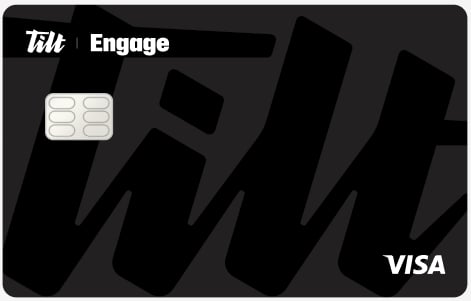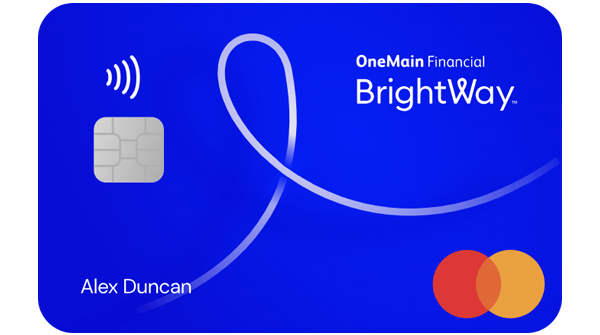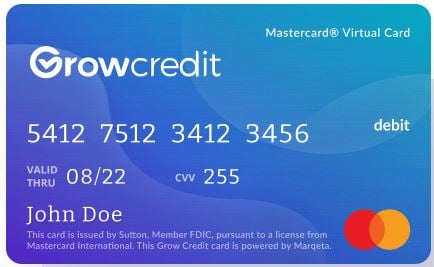Unsecured Credit Cards for Bad Credit
Decent options exist, but watch out for unsecured cards that charge lots of fees.

Many or all of the products on this page are from partners who compensate us when you click to or take an action on their website, but this does not influence our evaluations or ratings. Our opinions are our own.
If you have bad credit but hope to get a credit card, you have options. Your best bet is typically a secured credit card because you'll provide an upfront deposit as collateral.
Unsecured cards, on the other hand, don’t rely on collateral. As a result, it can be more of a challenge to qualify for an unsecured credit card if you have bad credit.
Still, unsecured credit cards for bad credit are available — but choose carefully. Some are decent options you can use on your credit-building journey, and they may help you qualify for other (better) cards later on. Others, however, charge a laundry list of mysterious fees and place strict limitations on how and where you can use the card.
Even if you have bad credit, you can do better than those products.
🤓 Nerdy Tip
With an unsecured card, you won't owe an upfront deposit — but keep in mind that any fees you pay to hold the card will not be refundable. (With a secured card, your deposit is refundable if you close the account in good standing.) Unsecured cards that are OK options for bad credit
The best unsecured cards for bad credit keep the fees relatively low and give you opportunities to build credit with different features. Ideally, at a baseline, they report your payments to all three major credit bureaus (TransUnion, Equifax and Experian). These companies record the information used to calculate your credit score, so a history of on-time payments can help your scores increase.
Other helpful features to look for include ways to increase your credit limit, as well as some kind of upgrade path to a better version of the card once your credit has improved.
In short, these aren't cards to hold forever, but by using them responsibly — not overspending, and paying your bill on time and in full each month — you can boost your credit scores and thus gain access to more rewarding credit cards.
Below are some options to consider. Some may charge an annual fee, but it typically won't be outlandish, or compounded by other hidden costs or drawbacks.
Tilt Engage
Annual fee: $59.
Rewards: 1% to 10% cash back at select merchants.
Why we like it: The Tilt Engage has a relatively low annual fee and fewer roadblocks than other unsecured cards for bad credit. The card's unique underwriting process means it may not rely solely on an applicant's credit scores: Real-time spending data like income and expenses can be used to determine eligibility. (in some cases, linking a bank account is required to provide this information.) Payments are reported to all three major credit bureaus, and the card offers several pathways for a limit increase. It’s also possible to earn cash back rewards when you shop with specific merchants.
OneMain Financial BrightWay® Card
Annual fee: $0-$89*.
Rewards: Unlimited 1% cash back.
Why we like it: The OneMain Financial BrightWay® Card is available only by invitation or through certain partner websites. But in addition to earning rewards, the card offers incentives for making six consecutive on-time payments. If you qualify, you may choose one of two "Milestone Rewards": a credit limit increase (of up to $15,000), or a reduced purchase APR (no lower than 19.99%). The card reports to all three credit bureaus.
Grow Credit Mastercard
Annual fee: $47.88 ($3.99 per month) to $155.88 ($12.99 per month).
Rewards: None.
Why we like it: The Grow Credit Mastercard allows you to build credit, but with multiple debt prevention guardrails in place. It’s a virtual card that can only be used to pay for qualifying monthly subscriptions like eligible bills, TV, music and other streaming services. It doesn’t charge interest or fees because you can’t spend outside of those purchases and you can’t carry a balance from one month to the next. There's no credit check, but a linked bank account is required to evaluate your creditworthiness. The card is tied to a membership plan, of which there are three you can choose from, based on eligibility. Each one varies in terms of cost, spending limits and eligible subscriptions. Payments are reported to all three credit bureaus.
Prosper® Card
Annual fee: $59 (waived for the first year if you sign up for autopay before your first statement).
Rewards: None.
Why we like it: While the Prosper® Card has an annual fee, it can be waived for the first year if you opt in to autopay before your first statement arrives. Initial credit lines range from $500 to $3,000, and Prosper automatically reviews your account to see whether you qualify for a credit line increase. You'll also get regular bureau reporting. For those in a cash crunch, Prosper gives new cardholders immediate access to 50% of their credit limit upon approval for the Prosper® Card. The card, issued by Coastal Community Bank, is designed for those who are building credit, but its website says it also will consider those with "less-than-perfect credit."
Seen Mastercard
Annual fee: $0-$75.
Rewards: None.
Why we like it: You may apply for the Seen Mastercard if you’ve received an invitation, or you can find out if you prequalify on the card’s website. Initial credit limits range from $300 to $3,000, depending on creditworthiness, and you might get a credit limit increase after making at least five consecutive on-time payments of at least the minimum amount due. New cardholders also get access to their Seen card immediately upon approval by adding the virtual card to a digital wallet such as Apple Pay. The card reports to all three credit bureaus.
Arro Card
Annual fee: $60 (though the first year may vary).
Rewards: 1% cash back on all purchases.
Why we like it: The Arro Card isn't free to hold, but the cost is reasonable compared to other cards in its class. It requires an annual Arro membership of $60, although that might be discounted in the first year depending on your starting credit line. It doesn’t require a credit check; instead, data like income and a linked bank account are used to determine whether you qualify. (There's no traditional upfront security deposit required.) This card also reports payments to all three major credit bureaus.
PerPay Card
Annual fee: There's technically no annual fee, but there’s a one-time account opening fee of $9 (as of August 2025) and a monthly account service fee of $5.50 to $9 per month for the first year, and $9 per month ($108 annually) thereafter.
Rewards: 2% earned on every payment made toward your balance.
Why we like it: The PerPay Card doesn't require a credit check or a traditional upfront deposit. Instead, you have to link your paycheck to cover the cost of the credit card bill. A portion of your paycheck is sent to your PerPay account through a payroll direct deposit, and these funds are applied to your card balance when automatic transfers are enabled. Payments are reported to all three major credit bureaus, and you’re considered for a higher credit limit in as little as three months. Still, this is among the most costly cards on this list, and if you don't feel comfortable linking your paycheck, you may want to explore other options.
Cards to avoid
With lower-cost options available, there’s just no reason to pay sneaky fees or put up with strict limits on where you can use the card. Here are some products to avoid:
Cards with excessive fees
Cards that can only be used at certain retailers
Article sources
NerdWallet writers are subject matter authorities who use primary,
trustworthy sources to inform their work, including peer-reviewed
studies, government websites, academic research and interviews with
industry experts. All content is fact-checked for accuracy, timeliness
and relevance. You can learn more about NerdWallet's high
standards for journalism by reading our
editorial guidelines.
Find the right credit card for you.
Whether you want to pay less interest or earn more rewards, the right card's out there. Just answer a few questions and we'll narrow the search for you.












